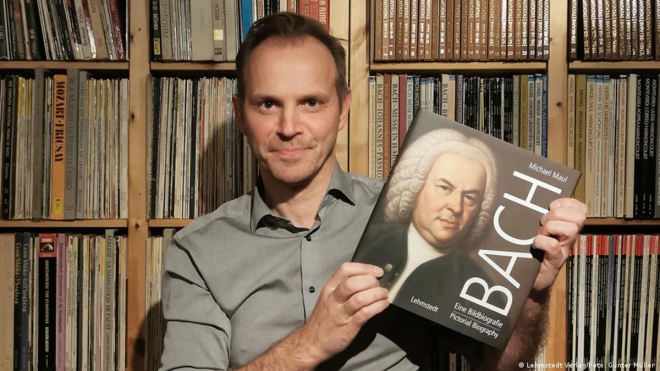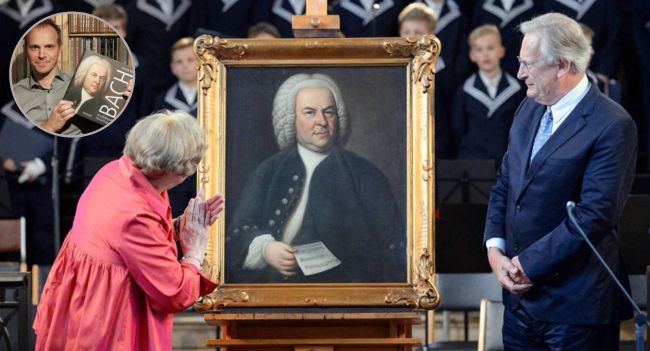Johann Sebastian Bach is one of the world’s most celebrated composers. A new biography now reveals the man behind the 18th-century musician.

We know that Johann Sebastian Bach was a musical genius.
His timeless “Christmas Oratorio,” the cantatas composed while cantor of St. Thomas church in Leipzig, the “Well Tempered Clavier” set of preludes and “The Art of Fugue” all retain a lasting influence on the music world.
In his bilingual English-German illustrated biography, titled “Bach,” Bach Festival Leipzig artistic director Michael Maul takes a look at other aspects of the great 18th-century composer’s life.
He describes a man who repeatedly offended his employers and in later years increasingly withdrew from church music. “There are many Bach biographies where Bach is portrayed as an eternal winner,” says Michael Maul, who reviewed documents that allow for a different interpretation. “My impression is that there were much stronger cultural-political conflicts in Bach’s time that people didn’t know about,” the renowned Bach researcher told DW.
A daily dose of Bach
Maul has researched Johann Sebastian Bach for more than 20 years — and feels he is far from done. Too many questions remain unanswered, and new notes or fragments of manuscripts still turn up.
In his biography, Maul put together many of these pieces of the mosaic in chronological order. “I have tried to reflect the state of Bach research and to insert things that I have not yet seen written anywhere,” he says.

The Bach expert tells readers about lesser know sides of Bach — who skipped class in school, beat up amateur bassoonists, and used bogus applications to play potential employers off against each other and demand more salary. He uncovers “aberrations in Bach research,” including theories exaggerating Bach’s attachment to number symbolism.
Rare facts about Bach
Michael Maul grew up surrounded by Bach’s music. His father was an avid piano player, “and he had two musical household gods, one was Beethoven and the other was Bach,” Maul says.
Unlike Ludwig van Beethoven, however, Johann Sebastian Bach left few personal writings or statements, just one letter to his friend Georg Erdmann.
Bach’s childhood is hinted at in the obit his son Carl Philipp Emanuel Bach wrote, including that he would secretly borrow his brother’s music book to copy the pieces of “famous masters.”
The gaps in Bach’s biography become apparent everywhere, Maul argues in the preface to his illustrated chronicle.
But even sheet music on yellowed paper can provide fascinating insights into Bach’s working methods. Marginal notes on one of the music sheets show Bach already had the next idea in mind while he was still writing a work.
“He spends most of his time finding a theme, that’s the creative part,” Maul says, adding that the rest is craftsmanship, when “the brain obviously switches to autopilot mode” and the composer penned what he had in mind.
He must have been under enormous pressure: from 1723, in his early days as cantor at St. Thomas church in Leipzig, Bach wrote a new cantata every week.




